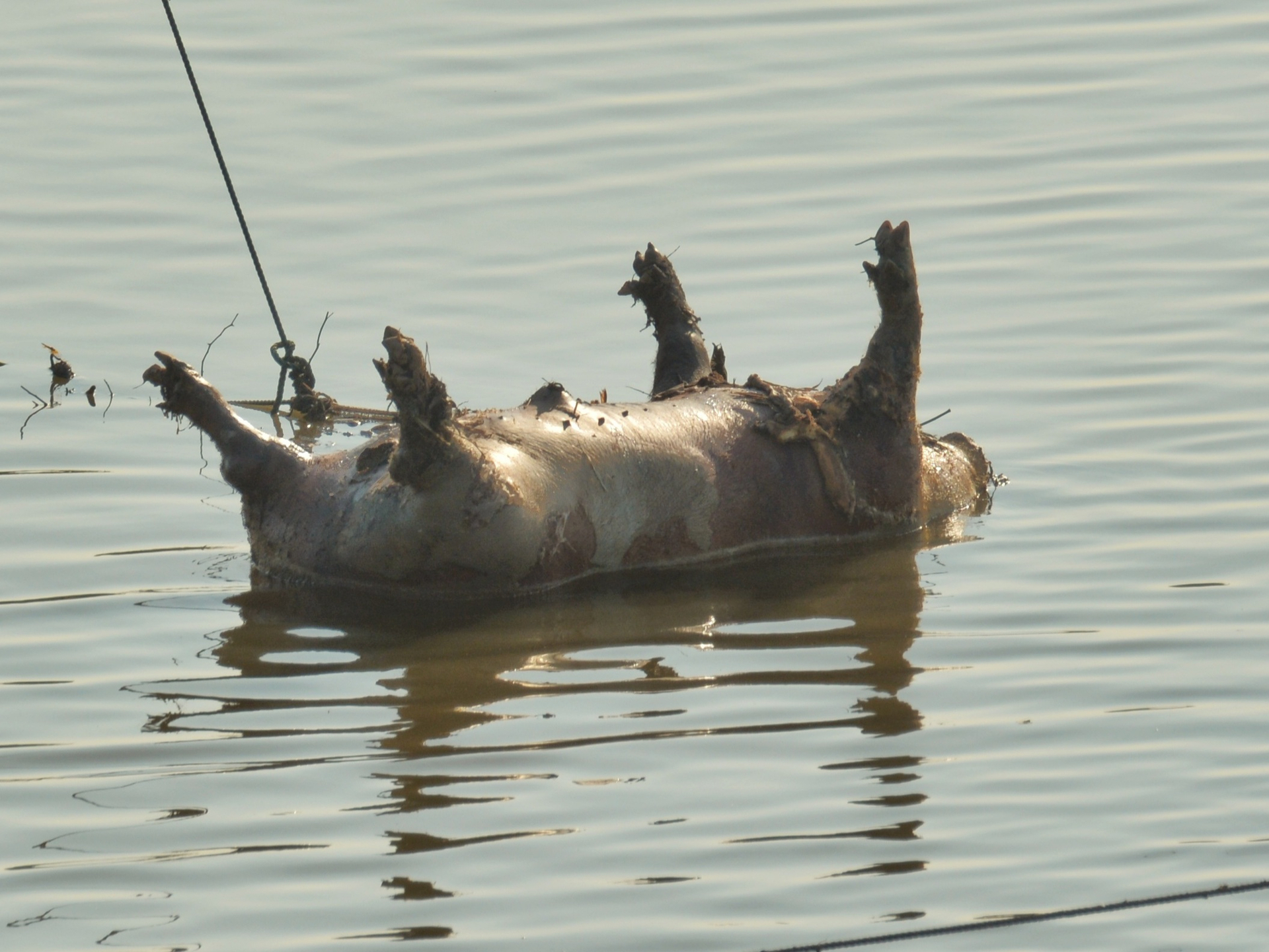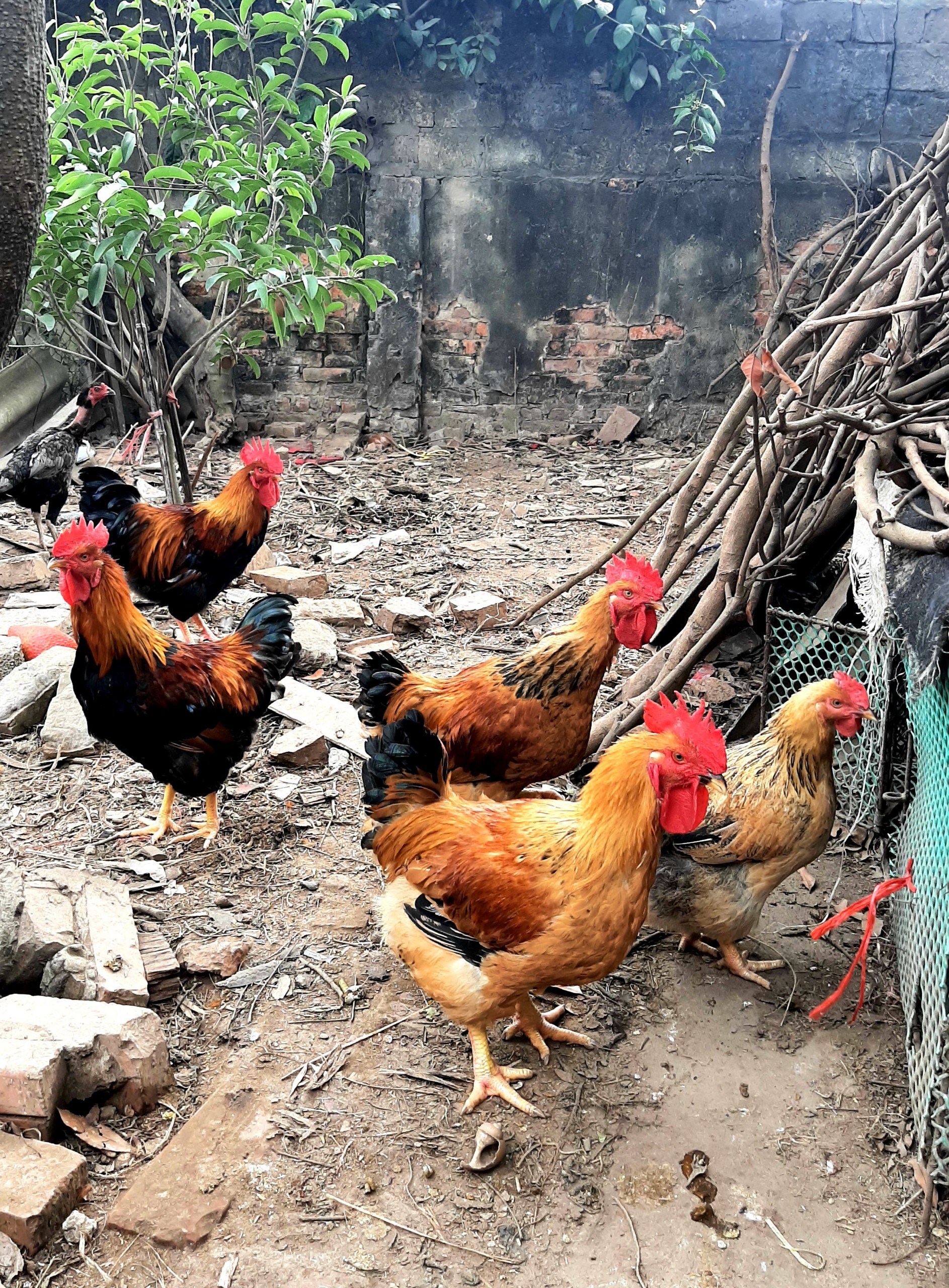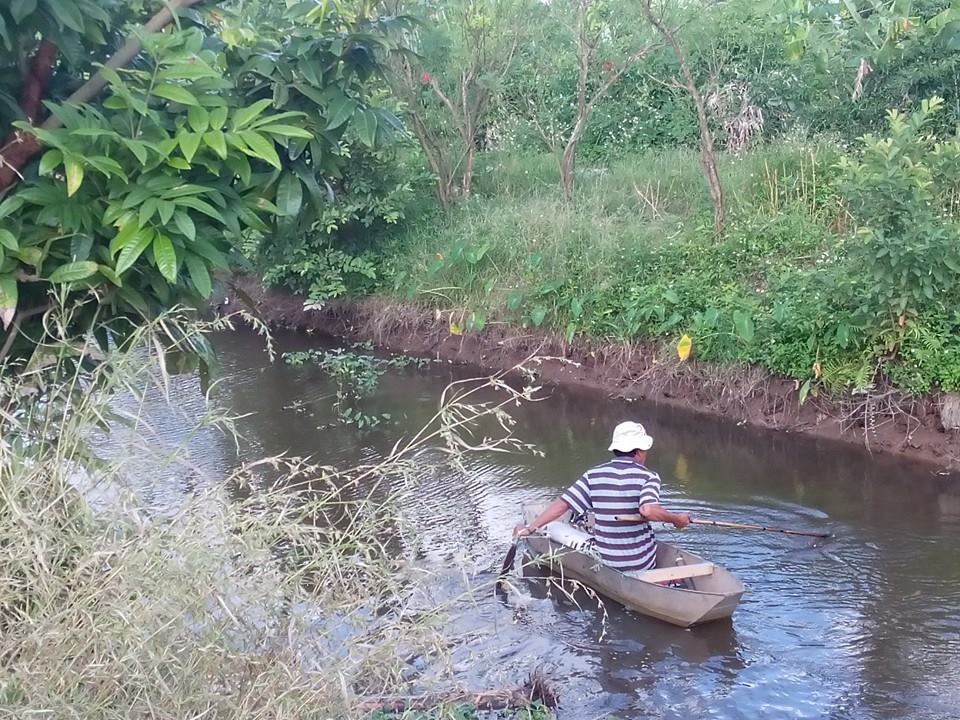November 27, 2025 | 23:44 GMT +7
November 27, 2025 | 23:44 GMT +7
Hotline: 0913.378.918
November 27, 2025 | 23:44 GMT +7
Hotline: 0913.378.918
To prevent and contain disease outbreaks and pandemic threats, it is necessary to identify new pathogen transmission events early enough so that they can be contained and, if possible, eradicated from animal and human systems prior to becoming a major health crisis. FAO, MARD, and stakeholders will collaborate on the development of systems that enable early detection of pathogen dissemination events in livestock, such as active, vertical virus surveillance of humans, wildlife, and domesticated animals.

FAO, MARD, and relevant stakeholders will provide assistance in the formulation of national strategies aimed at preventing and managing zoonotic diseases. Photo: Hai Nam - The Tan.
FAO, OIE (World Organization for Animal Health), UNEP (United Nations Environment Program), and WHO (World Health Organization) engage in a high-level policy dialogue to devise instruments and policies to minimize the introduction of new viruses into human and animal systems.
The primary objective of this study will be to decrease the occurrence of diseases in livestock. The primary tasks will involve supporting Vietnam in the assessment of prevailing risks associated with zoonotic diseases, with a particular focus on their priority in the animal.
Additionally, attention will be given to emerging risks arising from escalated consumption patterns and anticipated growth in livestock production. FAO, MARD, and relevant stakeholders will provide assistance in the formulation of national strategies aimed at preventing and managing zoonotic diseases. This will involve implementing suitable technical measures to decrease the occurrence of diseases transmitted from animals to domestic animals, consequently mitigating the risk of human infection.

FAO's action plan aims to preserve the ability to treat infections with effective and safe antimicrobials to sustain food and agricultural production.
The FAO Action Plan on AMR 2022-2026 sets out two main goals for FAO’s work on AMR: (i) reduce AMR prevalence and slow the emergence and spread of resistance across the food chain and for all food and agriculture sectors; and (ii) preserve the ability to treat infections with effective and safe antimicrobials to sustain food and agriculture production. In Vietnam, the FAO, the MARD and other CPF parties will focus on developing systems for monitoring AMR and antimicrobial/pesticide consumption, improve prudent and responsible use of antimicrobial/pesticide, and implement enabling good production practice to reduce antimicrobial/pesticide use, and increase stakeholders’ awareness and engagement.
BE1 (Climate change mitigating and adapted agri-food systems), BL2 (Inclusive rural transformation), BP1 (Innovation for sustainable agriculture), and BP2 (Blue transformation).
This output will be achieved through the development of an enhanced risk transfer and insurance system; the promotion of resilient and sustainable agri-food systems, fisheries and aquaculture, and marine waste management in the seafood industry; as well as through strengthening the legal gender-responsive framework, technical and management capacity, and financing mechanisms. In addition, the participation of women, ethnic minority children and youth in positive climate action will be facilitated.

The FAO and other relevant parties will promote sustainable financing mechanisms for conservation of the biodiversity and sustainable management of ecosystems.
Timely and effective humanitarian emergencies will be prioritized with a strong link to the Government’s social assistance to ensure alignment and complementarity. An anticipatory action protocol will be developed to enable effective early warning and early action to mitigate disaster impact through improved risk assessments, the application of remote sensing and inclusive digital data and tools. Priorities will also be addressed through nature-based solutions for climate change adaptation and disaster risk reduction.
This output will be achieved through enhancing capacity, policy, and mandates to support coherent and sustainable management of biodiversity and habitats, including forest, fisheries, land, and water resources. The FAO and other relevant parties will promote sustainable financing mechanisms for conservation of the biodiversity and sustainable management of the ecosystems.
The parties will introduce innovative mechanisms to attract and sustainably engage the private sector in sustainable natural resource management. Reduction of the negative impacts of climate change and environmental degradation on human development will be improved through increased public awareness and support mechanisms for families, women and children who experience multiple impacts from climate change and disasters. The FAO and other key stakeholders are also seeking to strengthen the normative framework to realize people’s environmental rights, strengthen capacities, and improve climate and disaster resilient systems for human development and in support of climate change adaptation.
Translated by Linh Linh

(VAN) On November 27, in the meeting with Minister Tran Duc Thang, Mayor Yin Yong shared Beijing’s experience to improve environment and air quality.

(VAN) After 30 years, both sides identified strategic areas of cooperation: sustainable production, increasing coffee value and training for farmers.
/2025/11/27/4910-4-164708_294.jpg)
(VAN) On the afternoon of November 27 in Beijing, Minister of Agriculture and Environment Tran Duc Thang held a working session with several major Chinese enterprises operating in the agriculture and environment sector.

(VAN) The Department of Animal Health issued a provisional guideline requesting local authorities to increase surveillance, collect samples for testing, and conduct epidemiological investigations according to the established procedure.

(VAN) The United Nations recommends that Vietnam utilize data and artificial intelligence to enhance early disaster warnings and reduce GDP losses by 3.2% in the context of climate change.

(VAN) On the morning of November 27 in Beijing, Minister Tran Duc Thang and the Deputy Commissioner General of the General Administration of Customs of China signed a protocol on fresh jackfruit exports.

(VAN) As floodwaters recede, a vast network of irrigation works across eastern Gia Lai is emerging in a state of severe disrepair, with extensive damage demanding urgent restoration ahead of the 2025-2026 winter-spring cropping season.